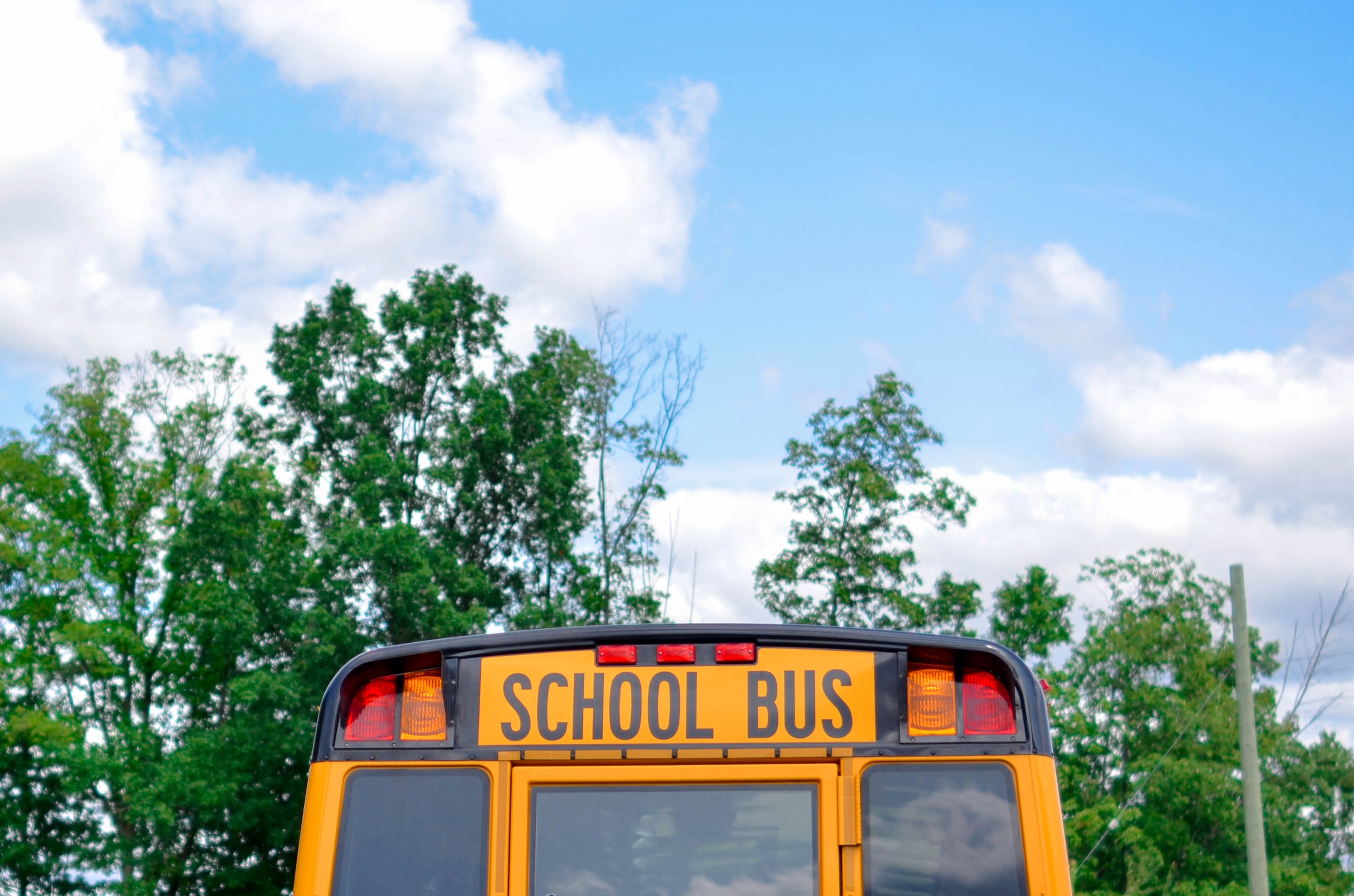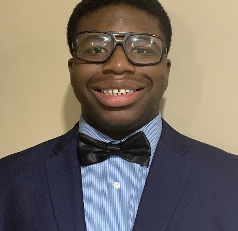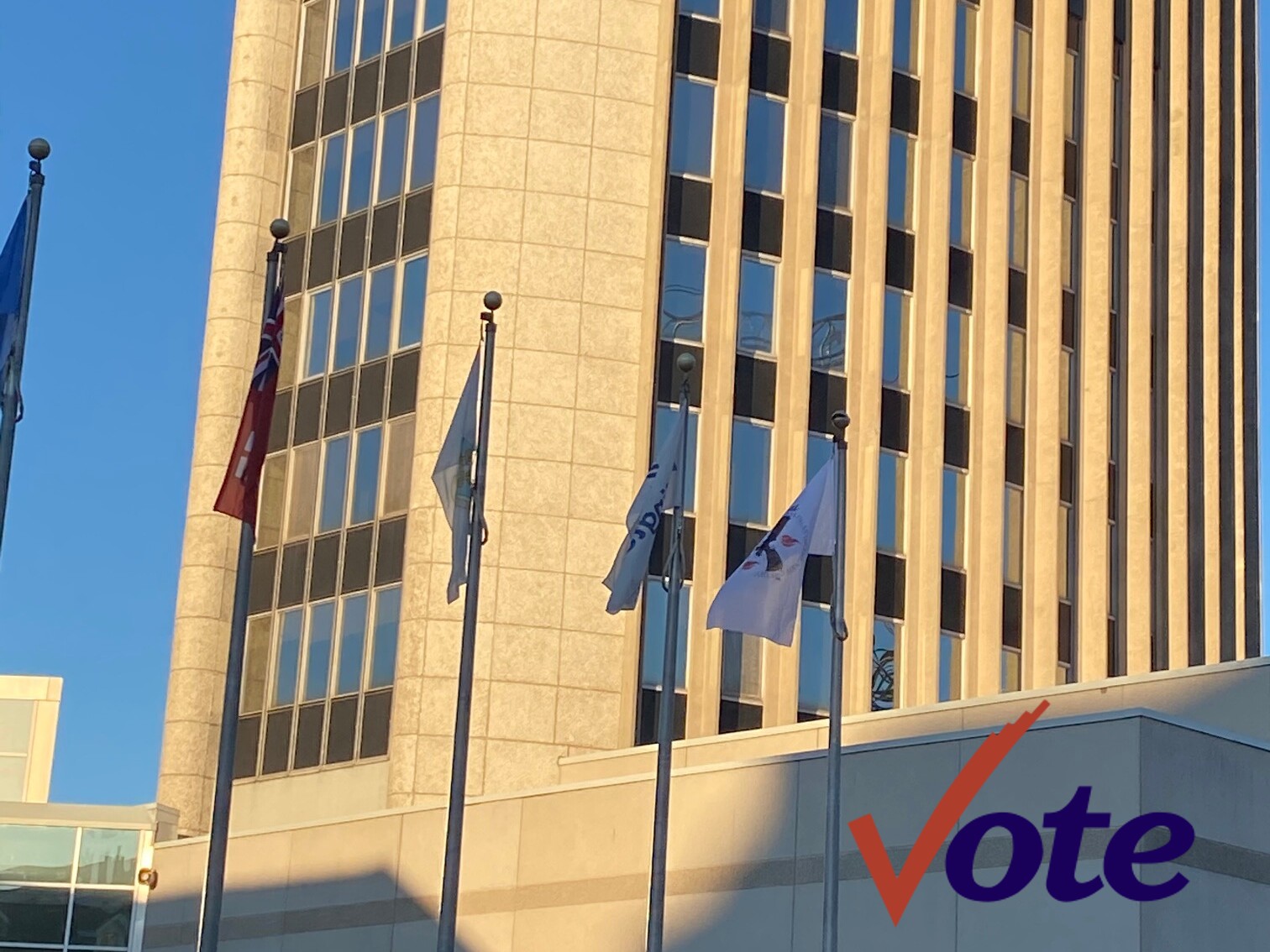By Maisha Hasan, Local Journalism Initiative Reporter
Halton District School Board (HDSB) recently announced the names of the incoming student trustees for the 2024–2025 school year, Kaitlyn Hou and Charlie Ochu. These two students will begin their term in September, following the terms of the current HDSB student trustees, Shrena Sribalan and Sultan Alimzhanov.
In the bustle of school life, leaders emerge to provide structure beyond math class and after-school clubs in the form of the student senate. Talented student leaders from across Halton comprise this group to bring student perspectives from their respective schools to the table. The student trustees then bring these voices to HDSB by way of the Board of Trustees.
Each student trustee is carefully hand-picked, being voted in by their senate peers; for the upcoming school year, 24 students were on the ballot. Voting took place in late February, resulting in the election of Kaitlyn Hou and Charlie Ochu. I had the pleasure of interviewing Kaitlyn and Charlie recently. They provided insightful perspectives into what it means to be a student trustee and how they will serve not only HDSB, but the students. Their official duties include running the student senate; attending HDSB Board of Trustees meetings, and attending the Ontario Student Trustees’ Association meetings, as well as playing an active role there.
What catapulted you into this journey of running for student senate? Was it something you were planning for some time?
Kaitlyn: I’ve always known that I wanted to make a difference in my community, and I yearned to be more connected with my classmates — the individuals who continue to inspire me on a daily basis. The prospect of influencing policies and changes to help my classmates and students all over HDSB catapulted me onto this journey, and I am incredibly grateful to have the opportunity to give it a shot.
Charlie: I’ve been planning to run for student trustee since ninth grade. I’ve always wanted to be involved in senate work and positively change the most important location in most students’ lives: their schools.
In addition, how did you learn about this position?
Kaitlyn: Through following many previous rounds of student trustee elections, I was inspired by the campaigns of past candidates and their commitment to making change in Halton. Every student in the HDSB would have also received emails informing them of incoming trustee applications and elections, so those notices further helped me familiarize myself with this position.
Charlie: While I vaguely knew about this role in grade 8 when I voted, I learned what one can do in this position in grade 9.
Why, in your opinion, is it pertinent that students get involved with the senate?
Kaitlyn: Where all students deserve agency over their education and a voice in their well-being at school, the student senate can provide a crucial platform for students to have a say in the decision-making process. Through youth engagement in the senate, policymakers and adults are then better able to make changes to our school systems to fit the needs of Halton’s youth better — this is why student engagement and the senate are so important.
Charlie: It is extremely pertinent that students are involved with or are at least knowledgeable of the senate. It should be a given that students know who influences their education, similar to why Canadians should know about our government.
How will you enact change in your community as a student trustee?
Kaitlyn: I plan to enact change that the community and student body want to see. Be it through Mental Health Days, Indigenous action, policy learnability, or bridging the gap between the students, the senate, and the board, as a student trustee, I am committed to representing and platforming Halton’s youth voices at the forefront.
Charlie: I have many plans to enact change, the two most important would be getting students engaged with their available post-secondary avenues and improving the mental health of students’ school lives by encouraging social interactions with peers.
Have the current student trustees, Sultan Alimzhanov and Shrena Sribalan, given you any advice?
Kaitlyn: Trustee Alimzhanov and Trustee Sribalan are some of the most inspiring, diligent, and kindest individuals I’ve ever met. Even within the short period since our election, we’ve been supported and guided every step of the way in understanding our new roles. I couldn’t be more grateful to have such amazing, knowledgeable mentors.
Charlie: Sultan and Shrena are the main reasons I’m not frantically running around trying to make heads or tails about what I need to do in this role. Without their monumental advice, I wouldn’t have half the knowledge I have about this position.
It is notable that the issues the new student trustees would like to tackle include mental health and Indigenous action. In recent years, more and more youth have become concerned with both, fiercely advocating for progressive change in and out of the classroom.
In recent years, anxiety has become a common mental health concern for children and adults, “affecting up to 20% of children and adolescents over their lifetime,” according to Anxiety Canada. The post-pandemic years have seen troubling rises in youth mental health challenges. It has become more important than ever for schools to recognize the importance of mental health — Kaitlyn and Charlie plan to recognize these concerns through Mental Health Days, as a catapult for those important conversations, and perhaps on the way to larger initiatives. There is an urgent need for resources that are readily available to teens; the HDSB student trustees and other teenagers share the same sentiment.
There has also been a push toward a more diverse curriculum. Kaitlyn referenced indigenous action, a view other students share. Arianna Chua, one of the Halton Catholic District School Board student trustees, voiced just that view in support of a change to the Catholic board’s grade 11 English course to focus on Indigenous literature.
“I think we all know that reconciliation is not [merely] an option,” Chua said. “We should not be able to choose whether or not we want to learn about Indigenous education or what Canada has done to Indigenous people. And if we keep this as an elective, we are deliberately allowing reconciliation to be optional, which is something that we should not be doing.”
HCDSB plans to replace the current grade 11 English course with “English: Understanding Contemporary First Nations, Métis, and Inuit Voices” next year. While Ontario as a whole has strengthened its Indigenous education, requiring Indigenous history to be taught in grades as early as one, there is more change required.
Kaitlyn, Charlie, and trustees across Ontario are passionate about change and recognize the issues youth care about, actively advocating in board meetings, and making sure students’ voices are heard. These student leaders inspire hope for a future where youth-driven initiatives and inclusive education pave the way for a brighter, more equitable tomorrow.
Sources:
Anxiety Canada. n.d. About anxiety [drop-down]. Url: https://www.anxietycanada.com/ (accessed March 24, 2024).
Northcott, A. Feb. 26, 2023. Canadian teens struggling with mental health even as pandemic wanes. CBC News. Url: https://www.cbc.ca/news/health/canadian-teens-mental-health-1.6759486 (accessed March 22, 2024).
Statistics Canada. 2022. Youth mental health in the spotlight again, as pandemic drags on. Stats Can Plus. Url: https://www.statcan.gc.ca/o1/en/plus/907-youth-mental-health-spotlight-again-pandemic-drags (accessed March 22, 2024).






